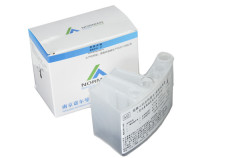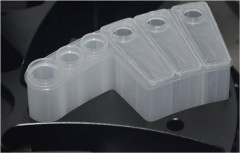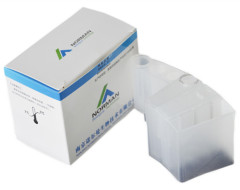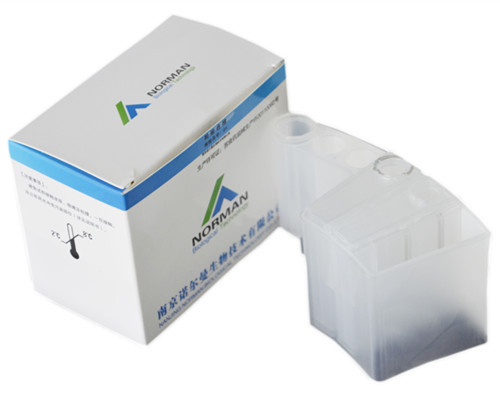


Thyroid Total Triiodothyronine (TT3) Chemiluminescence Immunoassay Reagent
| Min. Order: | 1000 Piece/Pieces |
|---|---|
| Payment Terms: | Paypal, L/C, T/T, WU |
| Supply Ability: | 1,000,000.00/Month |
| Place of Origin: | Jiangsu |
Company Profile
| Location: | Nanjing, Jiangsu, China (Mainland) |
|---|---|
| Business Type: | Manufacturer |
Product Detail
| Model No.: | NRM-411 |
|---|---|
| Means of Transport: | Ocean, Air, Land |
| Brand Name: | NORMAN |
| Methodology: | Chemiluminescence |
| Service: | International after-sales |
| Specimen: | serum |
| Manufacturer: | Independent R & D |
| Type: | Manufacturer |
| Model No.: | NRM-411 |
| Test time: | 18 min |
| Production Capacity: | 1,000,000.00/Month |
| Packing: | IN CARTON |
| Delivery Date: | TWO WEEKS AFTER PAYMENT |
Product Description
Thyroid Total Triiodothyronine (TT3) Chemiluminescence Immunoassay Reagent
Methodology
Chemiluminescence Immunoassay
Product Show 
TT3
Total Triiodothyronine (TT3) Kit (Chemiluminescence Immunoassay) is intended for in vitro quantitative determination of total triiodothyronine (TT3) content in human serum, based on NRM411 system.
Triiodothyronine (T3) is a hormone synthesized and secreted by thyroid or produced from its prohormone thyroxine (T4) outside thyroid. Its secretion is regulated by a negative feedback mechanism involving thyroid, pituitary and hypothalamus. In healthy populations, the concentration of T3 is 1/50 of that of T4. 99.7% of the T3 hormone reversibly binds to carrier proteins such as thyroxine-binding globulin (TBG), few albumins and prealbumins, and the rest T3 hormone remains in a free state. T3 is the true hormone. Its effects on target tissues are roughly four times more potent than those of T4.
Clinical Significance
Thyroid dysfunction may cause excessive or insufficient secretion of T3. Besides, disorders of pituitary and hypothalamus will affect the secretion of T3 as thyroid function is directly affected by thyroid-stimulating hormone (TSH). The change of T3 concentration is more sensitive than that of T4 in some thyroid diseases. For example, the test of T3 concentration in blood is more helpful for the diagnosis of hyperthyroidism than that of T4. The level of T3 can also be a good measure of the storage of thyroid hormone in the body under the condition of strong stimulation to thyroid.
Test Principle The assay is a competitive immunoassay for quantitative determination of TT3 concentration based on chemiluminescence immunoassay technology. The Magnetic Microbeads Reagent contains protecting reagents and magnetic microbeads that are coated with biotin labeled T3 antibody. The Antibody Reagent contains the protecting reagents and acridinium ester labeled BSA-T3 conjugate. Auxiliary Reagent contains dissociating agent and protecting reagents. Sample, calibrator or control is mixed with Magnetic Microbeads Reagent, Antibody Reagent and Auxiliary Reagent to form a sandwich complex. After incubation and automatic magnetic separation conducted by the instrument, trigger solutions are added to generate chemiluminescent reaction and the relative light units (RLUs) are measured by a photomultiplier. A proportional relationship presents between the concentration of TT3 in the sample and the RLUs detected by the NRM411 system.
Packages
100 Tests/Box, 200 Tests/Box.
Storage and Stability
Sealed: Stable until the expiry date when stored at 2-8ºC.
Opened: Stable for 4 weeks for reagents. Stable for 1 week after dissolved/opened for solid control material/liquid control material. To ensure the kit's best performance, it is recommended to place opened kits in the refrigerator if it's not going to be used on board during the next 12 hours.
Do not use it beyond the expiration date.
Calibration and Traceability
Calibration
Each batch of kits contains specific calibration information, stored in the Calibration Card.
Traceability
The TT3 assay is traceable to a NIFDC standard reference material (lot No. 150550-201203).

